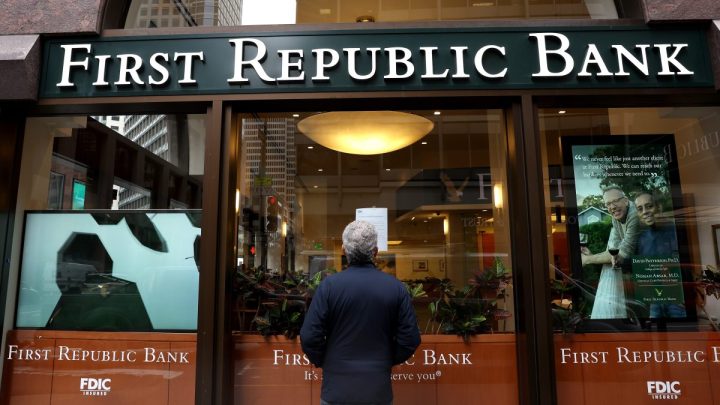
How will banking change amid wreckage of SVB, First Republic?
How will banking change amid wreckage of SVB, First Republic?

Back to the big business and economics story of the week: the failure and rescue of First Republic Bank. One could argue that this is really the big business and economics story of the last month and a half, since it was the failures of Silicon Valley Bank and Signature Bank that kicked this whole thing off.
The hope among banking leaders and regulators is that this episode is largely in the past. But the industry is already looking a bit different from how it did just a couple of months ago.
For one, it’s more fragile. Steven Kelly with the Yale Program on Financial Stability said a lot of people are nervous about their deposits, even if their banks are actually doing fine.
“It’s just always easier as an individual to run on a bank and figure out the truth later,” he said.
Kelly said the banking system is likely to become more regulated, at least in regard to midsize banks — like the ones that failed. Chris Odinet, a law professor at the University of Iowa, said there’s also a risk that the industry will become more consolidated if more banks fail.
“If that’s the case, then that creates more opportunities for large banks to acquire these banks, or at least acquire their assets,” he said.
This is all happening when banks are pulling back on lending, which is part of the Federal Reserve’s goal in raising interest rates. If the sector becomes more concentrated, Odinet said, newer businesses will have an even harder time getting loans.
That’s because bigger, national banks tend to favor established businesses that have a history of paying their debts.
“Making that determination for a newer business requires much more people time, it’s more hands-on. That’s harder to automate,” Odinet said.
Another side effect of consolidation? Banks tend to close branches, said Mehrsa Baradaran, a law professor at the University of California, Irvine.
“You’re going to have many, many communities that don’t have a bank within, you know, 50 miles or something,” she said. “That’s a devastating thing for thriving businesses in that community.”
Baradaran said that over the last 10 years, more than 95% of merger-related branch closures occurred in lower-income and rural communities.
There’s a lot happening in the world. Through it all, Marketplace is here for you.
You rely on Marketplace to break down the world’s events and tell you how it affects you in a fact-based, approachable way. We rely on your financial support to keep making that possible.
Your donation today powers the independent journalism that you rely on. For just $5/month, you can help sustain Marketplace so we can keep reporting on the things that matter to you.












